Proposals to rescind voter ID laws have remained widely unpopular across the U.S., which tells the tale of Virginia Governor Ralph Northam’s effort to repeal them.
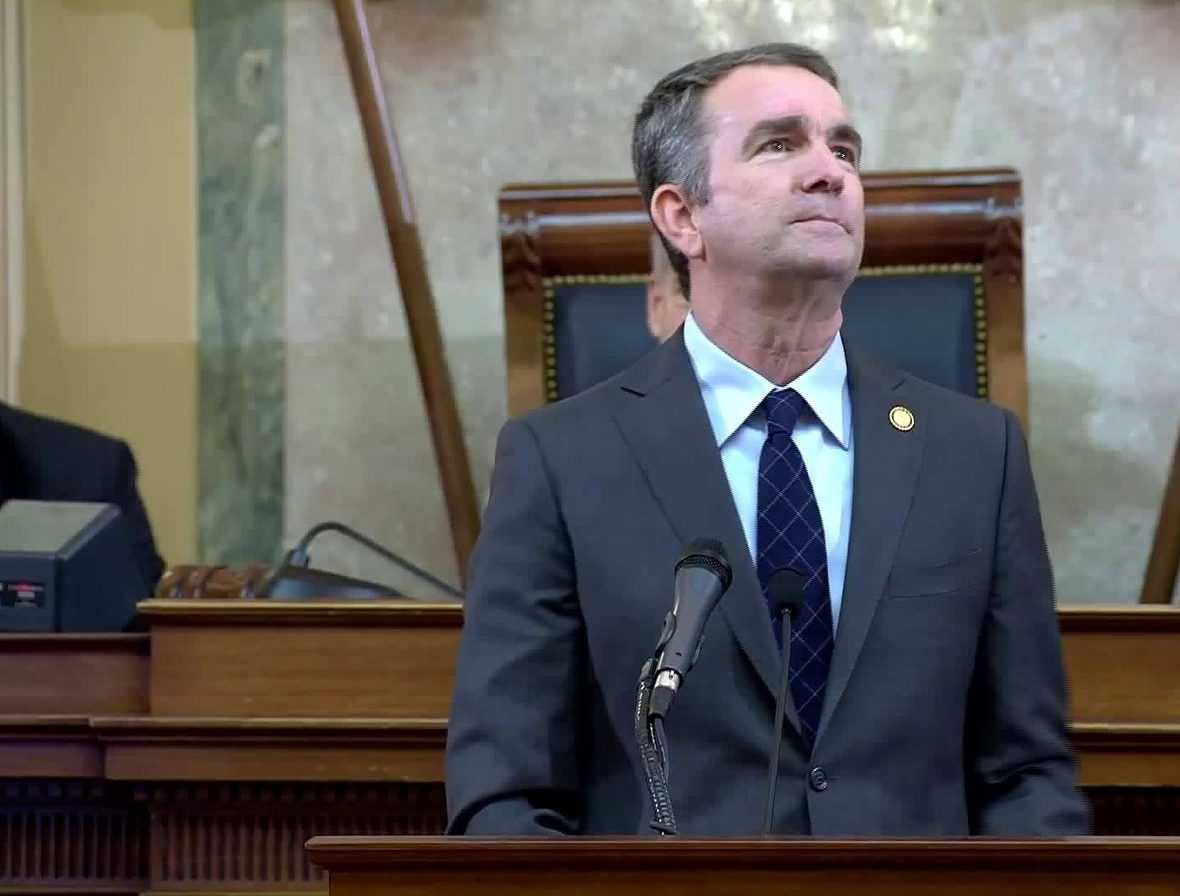
Virginia's Public Square
Virginia's Public Square

Proposals to rescind voter ID laws have remained widely unpopular across the U.S., which tells the tale of Virginia Governor Ralph Northam’s effort to repeal them.

After three alpacas were attacked and injured last October in James City County, Virginia, lawmakers in Richmond are set to classify the animals as livestock, granting them legal protections they did not have before.

Although there are still concerns with school children suffering concussions while playing sports, Delegate Richard “Dickie” Bell has sponsored a bill set to help the health education of student-athletes and their distressed parents.

Virginia could soon be joining New York in repealing restrictions on abortion, including terminations up until the moment of birth, under the provisions of a bill backed by Governor Ralph Northam and a substantial number of Democratic lawmakers.
The Repeal Act, introduced as HB2491 by Delegate Kathy Tran (D-Springfield), would repeal restrictions on third trimester abortions, allow abortion doctors to self-certify the necessity of late term procedures, eliminate informed consent requirements, repeal abortion clinic health and safety standards, permit late term abortions to be performed in outpatient clinics, remove ultrasound requirements, and eliminate Virginia’s 24 hour waiting period.
Tran’s Repeal Act received its first subcommittee hearing on Monday, in which the legislation’s sponsor confirmed that the bill would apply to controversial late term procedures, similar to the legislation signed recently by New York Governor Andrew Cuomo.
Under questioning from a House subcommittee, Tran said third trimester abortions would face substantially fewer restrictions.
“How late in the third trimester could a physician perform an abortion if he indicated it would impair the mental health of the woman,” asked subcommittee chairman Todd Gilbert (R-Shenandoah).
“Through the third trimester,” responded Tran. “The third trimester goes all the way up to forty weeks.”
Tran also clarified that abortion procedures would be allowed up until the end of a woman’s pregnancy.
“I don’t think we have a limit in the bill,” added Tran.
In response to a question from Gilbert, Tran also suggested that partial birth abortions would be subject to the bill’s repeal of existing restrictions on the procedure.
“Where it’s obvious that a woman is about to give birth, that she has physical signs that she is about to give birth, would that still be a point at which she could request an abortion if she was so certified?” Gilbert asked.
“She’s dilating,” he continued. “I’m asking if your bill allows that.”
Tran responded that it would.
“My bill would allow that, yes,” she affirmed.
Upon further questioning, Tran explicitly addressed the hypothetical case of aborting a healthy infant, one week before the mother’s due date, on grounds of mental health.
“I certainly could have said a week from her due date and that would have been the same answer, correct?” continued Gilbert.
“That it’s allowed in the bill? Yes,” responded Tran.
Also at issue was the bill’s proposal to change the standard under which third trimester abortions may be performed in Virginia.
Under current law, third trimester abortions require the certification of two independent doctors, who each must verify that the continuation of the pregnancy would “substantially and irremediably impair the mental or physical health of the woman.”
Tran’s bill would substantially relax that standard, removing the words “substantially and irremediably,” allowing the doctor performing the abortion to self-certify the procedure which he or she will perform, without a second opinion, even in cases where a healthy infant could be delivered without risk of physical harm to the woman.
Upon questioning from the committee, Tran confirmed that was the intent of her bill.
“You do acknowledge that you substantially change the standard, by removing a couple words here, correct?” asked Gilbert. “Line eighty, you are changing the standard under which the judgement call is made.”
“Yes, I’m aware,” responded Tran. “I’m changing the standard, yes.”
As the hearing continued, committee members asked the bill’s sponsor to clarify which mental health conditions could be used to justify abortions until the moment of birth.
Tran was unable to provide a response.
“What type of mental health conditions would you anticipate would be utilized by physicians under these circumstances to determine that a child that is otherwise viable is worthy of an abortion?” asked Gilbert, as the questioning continued.
Hesitating, Tran declined to cite a condition, saying she was not a physician, but did clarify that no special mental health training would be required for doctors making such certifications.
The mental health issue was highlighted as a potential loophole allowing late term abortion on demand by Victoria Cobb, president of the Family Foundation, a Virginia group which advocates for socially conservative policy positions.
“The most egregious part of this bill is that it would vastly widen the narrow rationale where our law allows a third trimester abortion, by no longer requiring that a woman’s physical or mental health be ‘substantially and irremediably impaired’ by the concurrence of three doctors.”
“This bill creates abortion, virtually on demand, up until the point of birth.”
The committee also inquired which conditions might require that a third trimester abortion be performed upon an otherwise healthy and deliverable infant in order to protect the physical health of the mother.
“Is there any commonly accepted medical decision to terminate the pregnancy in the late term, rather than deliver the child, if the mother’s health or life is actually in danger?” asked Gilbert.
Tran did not cite any examples before turning the microphone over to a lobbyist from NARAL Pro-Choice Virginia, who was also unable to cite a case with specificity, responding only that she believed such an example happened in Ireland.
Chairman Gilbert was less than impressed with the lack of medical answers.
“Well we’re talking about a lot of physician stuff here and nobody appears to know the answer, and the doctors aren’t here, so it would have been helpful, maybe, to have those questions answered,” Gilbert said in closing.
Following the hearing, the subcommittee voted on party lines to recommend that the bill be laid on the table, though that decision is not binding on the full committee.
While the bill is not expected to pass this year, it represents a policy vision embraced by top Democrats, including Governor Ralph Northam, Lt. Governor Justin Fairfax, Attorney General Mark Herring, and a host of lawmakers, should Democrats succeed in winning legislative majorities in this fall’s elections.
Democrats have said this bill would be a priority if they should take the majority.
Currently, Republicans control the House of Delegates and the Senate of Virginia by razor-thin margins of 51-49 and 21-19, respectively.
“So when can’t change peoples minds, we need to change seats,” said Governor Northam, speaking to the upcoming November elections at a press conference earlier in January.
Watch highlights from the committee hearing below, in longer form than the summary above.
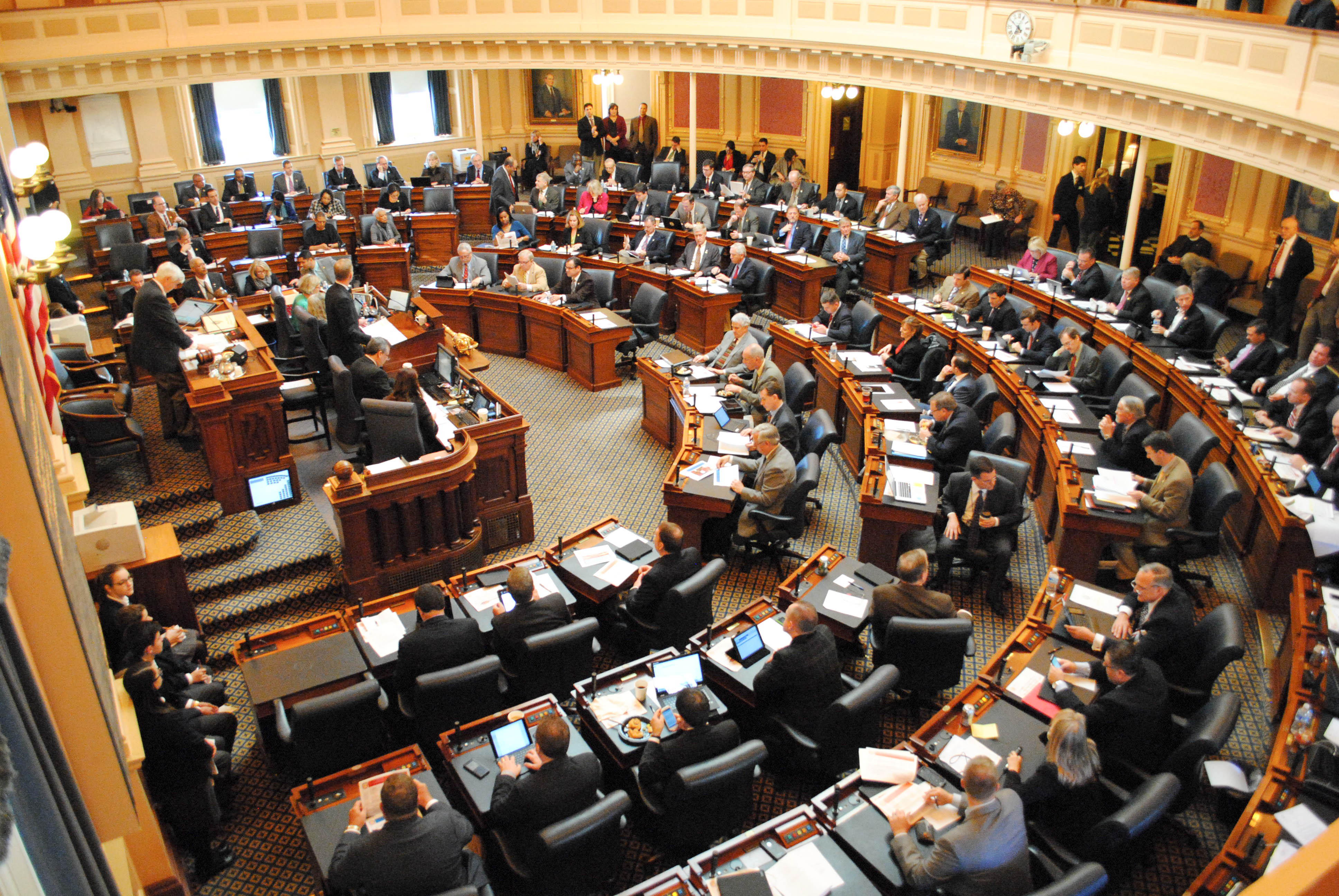
When Republicans announced that gun control legislation from Democrats was “dead on arrival” in the 2019 General Assembly session, they were serious, very serious.

As more credit fraud is being committed either over the phone or internet, one Virginia lawmaker is set to fill the hole that seems to be a getaway for criminals.
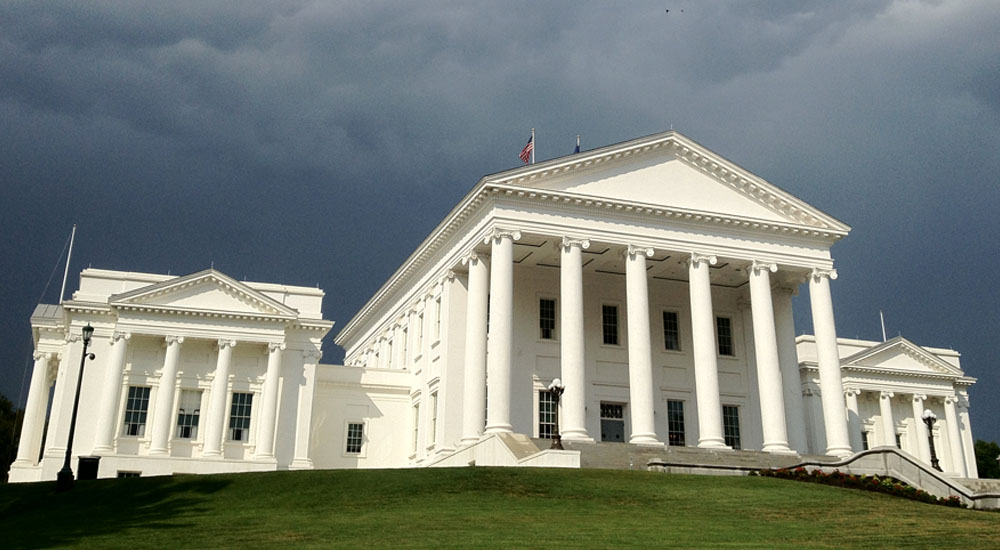
While tens of millions of vehicles in the U.S. are under a Takata-branded air bag recall, Delegate Rob Bell is pushing legislation to levy larger penalties on mechanics and others who “knowingly” install defective air bags.
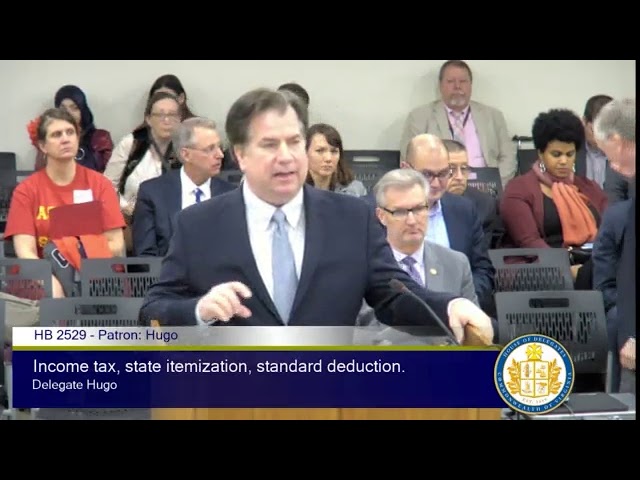
Virginia’s middle class is one step closer to much-awaited tax relief.
This morning, Republicans in the House Finance Committee advanced a package of legislation aimed at easing the tax burden on the middle class, blocking Governor Ralph Northam’s planned tax hike, expanding itemization flexibility, and updating Virginia’s tax code to reflect changes in the 2017 federal tax reform law.
Last year, Governor Northam and his Democratic allies floated a tax increase to pay for his spending plan, announced earlier this year. Under Northam’s plan, state spending would increase by $2.2 billion, with $1.2 billion of that paid for through higher taxes on 600,000 middle class families. $1.6 billion of Northam’s proposed spending increases would occur after his term expires.
Republicans have said Northam’s tax increase is “dead on arrival.”
“Since last summer, we have been united against Governor Ralph Northam’s plan to pass on higher taxes in order to finance new state spending,” said Speaker Kirk Cox (R-Colonial Heights) in a press release.
“The House Finance Committee acted today to set aside all of the individual income tax revenue from the federal tax cuts to ensure that we provide tax relief to those affected by federal and state tax law changes.”
The legislative package would direct $950 million into a taxpayer relief fund providing assistance to those impacted by the changes.
HB2529, patroned by Delegate Tim Hugo (R-Clifton), allows taxpayers to itemize regardless of how they pay their federal taxes, increases the standard deduction from $3000 to $4000 for individuals, and from $6000 to $8000 for married couples. Under this legislation, additional revenues arising from economic growth and other sources would be directed towards the Commonwealth’s Tax Policy Fund, to be used for tax relief beginning in 2020.
Hugo’s bill advanced on a party line vote, with all Republicans voting in favor of tax relief and all Democrats backing Northam’s call for higher taxes.
“We will provide immediate tax relief to middle-class Virginians,” said Hugo, the chairman of the Republican Caucus. “Our plan will allow taxpayers to itemize their state taxes regardless of how they file their federal return, increase the state standard deduction across the board, and maintain the important state and local tax (SALT) deduction as it exists today. This protects a middle class family that itemizes from what could be roughly a $805 tax increase or providing an additional $115 in tax relief to a family that chooses the standard deduction.”
The legislation also leaves in place the current state and local property tax deduction (SALT), instead of capping it at $10,000, includes a number of technical corrections, removes a drafting error on mortgage interest deductions, and includes the “GILTI” subtraction to prevent a new tax on foreign income for businesses who locate in Virginia.
Republicans have said this tax relief would not cost the state “one penny” and would leave ample revenues available to fund teacher pay raises and other core government services.
The proposal would provide an immediate $575 million in tax relief for the next year, while still allowing for revenue growth. Current projections show the GOP-led effort will result in $37 million in more revenue in the next fiscal year.
Also advanced today was HB2355, introduced by Delegate Chris Jones (R-Suffolk), which advances Virginia’s tax conformity to December 31, 2019, while directing $952 million in revenue from the changes towards the taxpayer relief fund for next year. This provision would capture 100% of the limited-time tax relief made available through the Tax Cuts and Jobs Act (TCJA).
“Though we recognize that we must act on conformity, we are committed to providing tax relief to those impacted by the federal tax changes. My legislation puts all individual tax revenues from conformity in a ‘Taxpayer Relief Fund’ to ensure that it is not used for state spending,” said Jones, who chairs the House Appropriations Committee. “The House budget that will be released on Sunday will not spend one dime of the increased individual tax revenues from the Tax Cuts and Jobs Act and I am committed to providing tax relief for middle-class families.”
Finance committee chairman Lee Ware (R-Powhatan) urged the Commonwealth to act quickly, with the filing deadline approaching.
“With tax filing season upon us, it is important that we act quickly to move forward on conformity,” said Delegate Ware. “By setting aside all revenue from federal tax reform, as Chairman Jones’s bill does, we can ensure that the General Assembly has an opportunity to debate clearly what we should do with this money. Our plan would guarantee tax relief, while Governor Northam uses it to finance $2.2 billion in new state spending.”
Republicans have unified behind the plan, making tax relief and opposition to tax increases a priority for the legislative session.
The issue is proving to be a sharp dividing line between Republicans and Democrats as session rolls on. While the GOP has largely focused on the impacts of the bill for taxpayers, Democrats remain committed the governor’s talking points, denying that the additional $1.2 billion in revenue will be paid by the middle class.
Earlier this month, Democratic minority leader Eileen Filler-Corn wrongly stated that Northam’s proposal was not a tax hike.
“We also heard some incorrect information from the delegate from Fairfax, stating that Governor Northam’s proposal was a tax increase,” said Filler-Corn, in a floor speech to the House of Delegates, referencing Hugo’s legislation.
“There is no tax increase in the governor’s budget plan,” she continued.
Editorial boards have disagreed with her characterization, with the Richmond Times-Dispatch writing, “Gov. Northam’s tax plan wallops the middle class.”
Considering the example of a two-teacher married household, the Times-Dispatch noted, “Assuming a net income of about $80,000 for our two young educators, a back-of-the-envelope calculation of their state income tax liability suggests it would balloon by at least $700 under the Northam plan.”
While the future of the plan remains to be seen, as session continues, Republican legislators said they would continue to fight for tax relief and oppose the higher taxes proposed by Governor Northam.
Virginia’s regular legislative session is scheduled to continue through mid-February. GOP lawmakers said they hoped changes to tax policy would be made in time for filing session, however some lawmakers have hinted that a special session may be forthcoming, if legislators are unable to agree on changes before the General Assembly adjourns.

58,000 non-citizens were confirmed to have voted in Texas elections. Virginia Senator Mark Peake (R-Lynchburg) has introduced legislation to verify voter citizenship and prevent a similar problem in the Commonwealth. Peake’s bill has advanced out of committee, with all Republicans in support and all but one Democrat opposed.
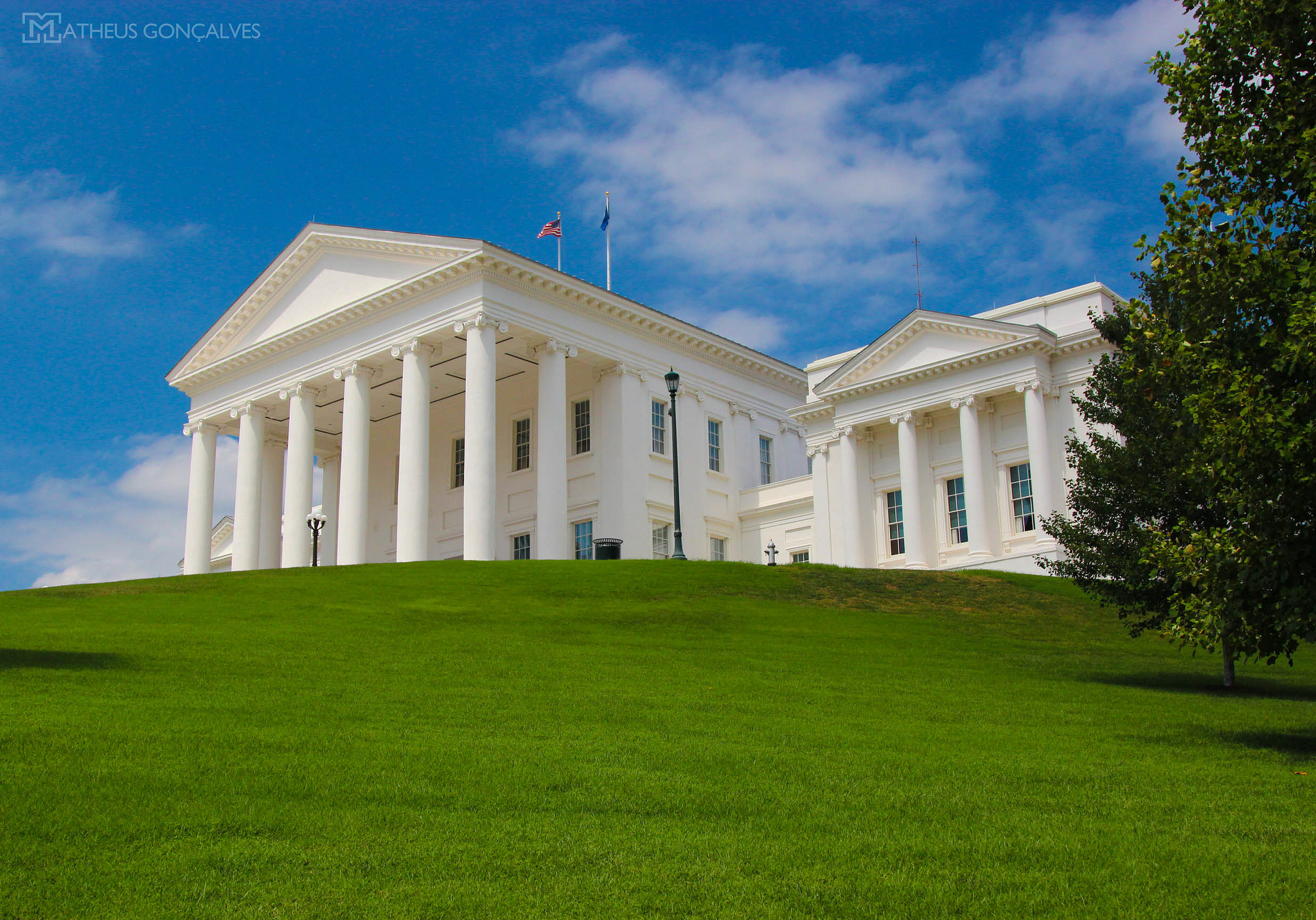
Following the Supreme Court’s decision in South Dakota v. Wayfair (2018), Virginia lawmakers are jumping on the opportunity to collect internet sales tax. The bigger question: what will the money be used for?